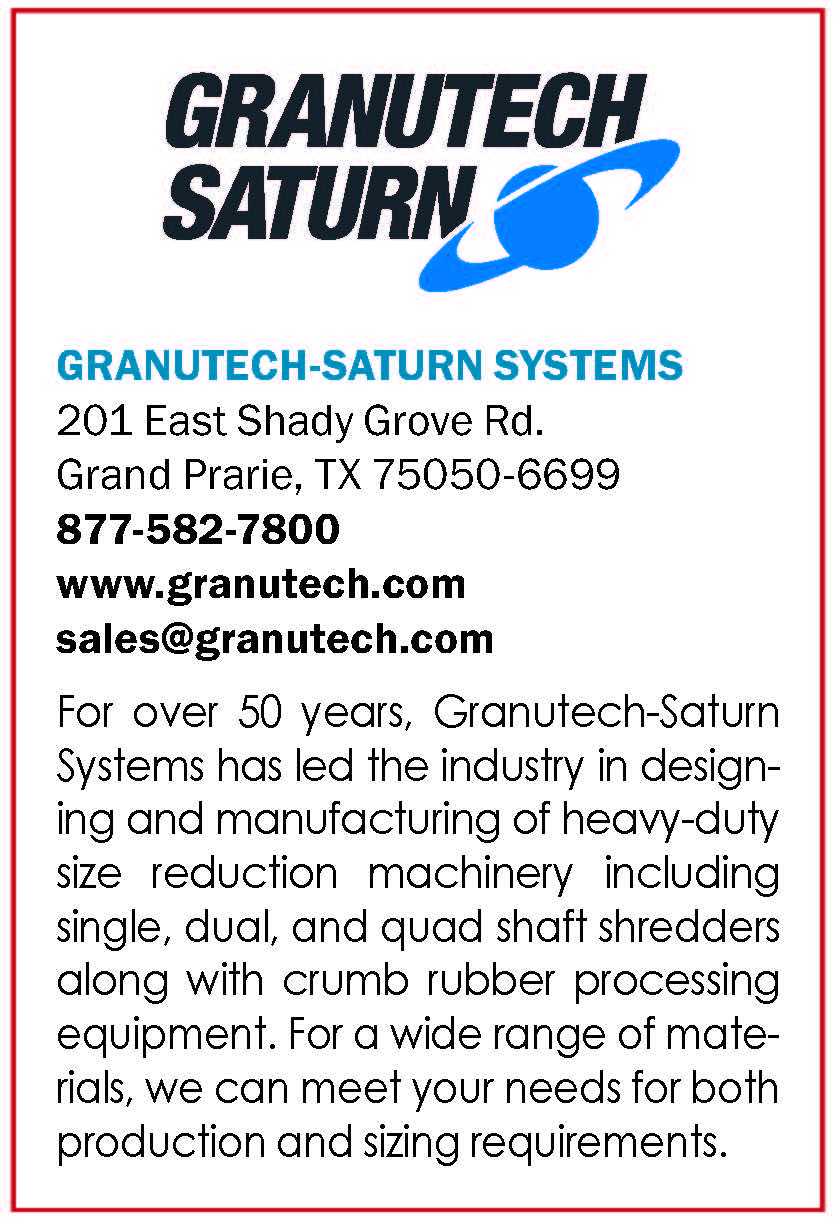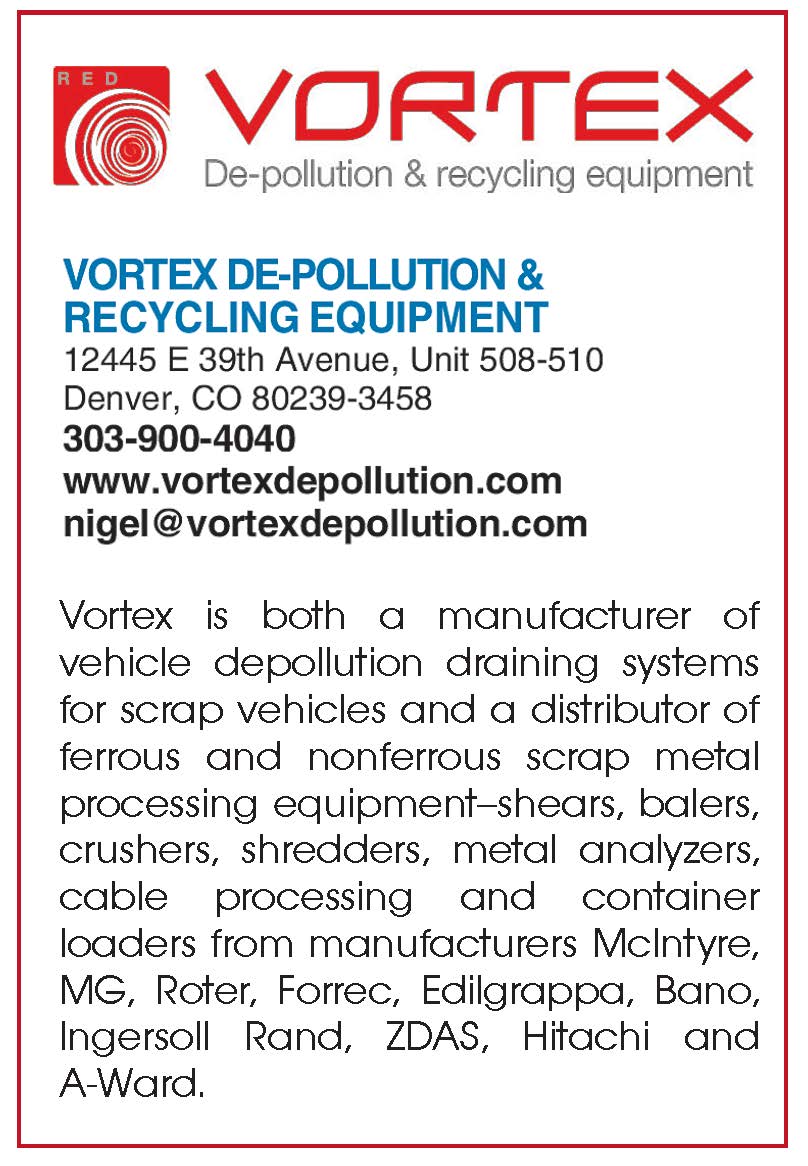
Manufacturers3TEK Global Bill Padula 803-920-0689
American Pulverizer James Holder 314-781-6100
BCA Industries John Neuens 414-353-1002
Bronneberg BV Ivo Willems 31 492 591900 www.bronneberg-recycling.co.uk
Danieli Corporation Daniel Coe 878-208-8187 www.danieli-centro-recycling.com
Franklin Miller Jake Glancy 973-535-9200
Gensco Equipment Mark Zelunka 800-268-6797
Granutech-Saturn Systems Greg Wright 877-582-7800
Harris Waste Management Group Philip Walls 229-273-2500
JMC Recycling Ltd Nigel Dove 303-900-4040
Komar Industries Mandy Howenstine 614-836-2366
LEFORT America Jonathan Miller 561-716-4446
Lindner Recyclingtech America LLC Jacob Dennis 800-235-1391
Metso Metal Recycling Keith Carroll 210-247-7493
Schutte Hammermill Dan Sullivan 800-447-4634
Shred-Tech Joe Roberto 800-465-3214
Sicon America Greta Reue 678-527-1432
SSI Shreding Systems, Inc. Dave Wilson 503-682-3633
UNTHA Shredding Technology Inc. Berni Martinz 603-601-2304
Vezzani S.p.A. Gabriele Merlo 39 143 81844
Vecoplan LLC Matt Lowman 877-738-3241
Weima Madison Burt 803-802-7170 |
The 2030 scrap metal recycling market is expected to be worth $112.94 billion, globally, according to a recent report by Verified Market Research®. The market continues to expand as industries increasingly adopt sustainable practices, strive for increased economic benefits, and respond to new market sectors that are reliant on scrap metals. The following are some examples of the shredders available for efficiently processing a variety of scrap metals.
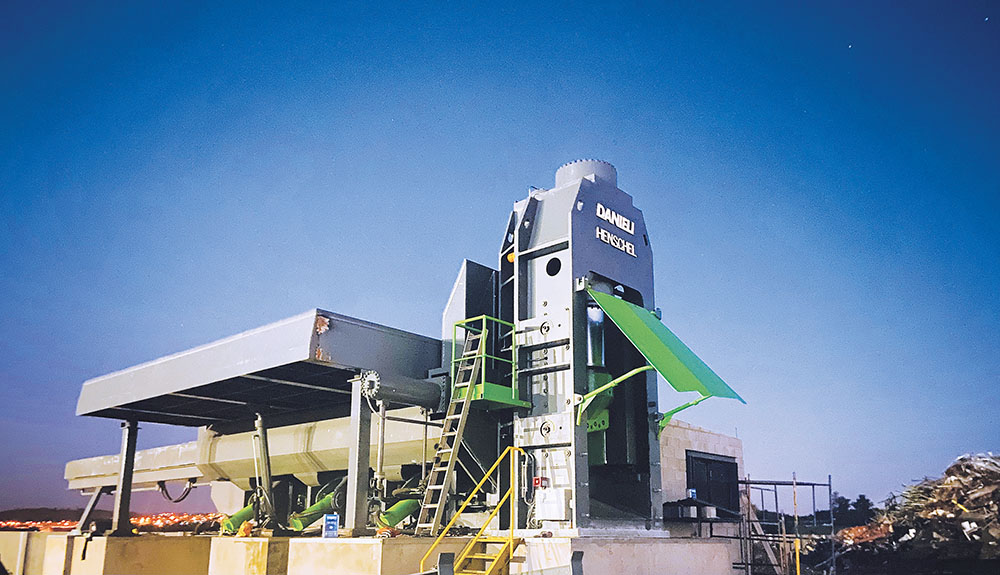
Danieli Corp.
Daniel Coe, sales manager at Danieli, explained how “shear balers, side compression shears, and inclined shears play a vital role in scrap processing. A shear bale could be considered the Swiss army knife of the scrap yard because it serves multiple functions. Our state-of-the-art DIS series involves a side pusher block system that adds to the density of the material. The patented DIS automatic blade changing system allows an operator to change blades in under an hour, which greatly reduces the risk of employee injury. The DIS can process up to 110 tons per hour with a nominal production rate of 60 tons per hour.”
Danieli stationary shears can range from 500 to 3,000 tons of cutting force and allow scrap yards to bale and log material as well as shear P&S, HMS and more. “If scrap yard operators do not use some form of stationary shear, they are leaving money on the table because they aren’t processing material at an optimum level and therefore not upgrading the value of that material. With the ability to bale light goods, white goods, and ELVs it is then possible to transport more weight per load. A shear baler will outperform a mobile shear by approximately three to one. A typical mobile shear will process approximately seven to ten tons per hour and a similar size shear baler will process 20 to 23 tons per hour. Cost per ton is significantly reduced when using a shear baler compared to a mobile shear and side compression shears are particularly suitable for shearing and compacting heavy and bulky scrap metal. Load tables can be added to a side compression shear so that user production will increase while cost per ton is reduced. A shaker pan and staking, take away conveyor can be added to reduce handling costs. A shear baler or side compression shear chamber size may be limited when loading material. If feeding in longer material, double processing may be required and material is first cut to size by a mobile shear, then loaded into the chamber for processing, which adds time and cost per ton,” said Coe.
“For oversized material that is time-consuming to process, the inclined shear is the ideal machine choice because it is not restricted to a chamber size. Material is loaded into the chamber and is gravity fed into the shear head. Ideal materials for an inclined shear include oversized pipe, heavy plate, mill rejects, and materials which do not require baling. Some inclined shears do have a side compression pusher block, but optional size throat openings for shear heads may allow a variety of material widths to be processed,” he concluded.
Jonathan Miller, managing director, stated that “LEFORT has long been a leader in the scrap metal processing industry and the patented LEFORT Trax shears are some our most popular models. The Trax product configuration allows the machine to be easily moved to various processing areas within a scrap yard, instead of moving scrap to the processing machine. Dozens of these versatile machines are in use in North America and besides providing easy mobility, these shears also do not require a foundation and so reduce construction and permitting costs as well as related challenges. The LEFORT Trax is available in various sizes up to 1,375 tons of shearing force.”
Miller added, “From the earliest alligator shears and small balers to the range of mobile machines and more recently the revolutionary Trax machines, LEFORT continues to lead the industry in research and development of products to provide scrap processors with more efficient methods of managing their materials. Through continuous reinvestment in our factory facilities and production technology, as well as our recent acquisition of Copex, LEFORT has more than doubled production. We’ve adapted to the increasing demand for products, including for the Konkeror and Trax lines of ‘monoblock’ machines and we also produce large stationary shears with up to 2,200 tons of shearing force.”
Founded in 1947 and in Belgium by Nestor Lefort, Nestor’s grandson and great grandsons manage the business to this day. In 2014, LEFORT America, based in Sunrise (Fort Lauderdale), Florida, was established. This expansion allows the firm to provide North American and Latin American customers with easier access to the same parts and service support that has been provided for many decades, to clients in Europe.
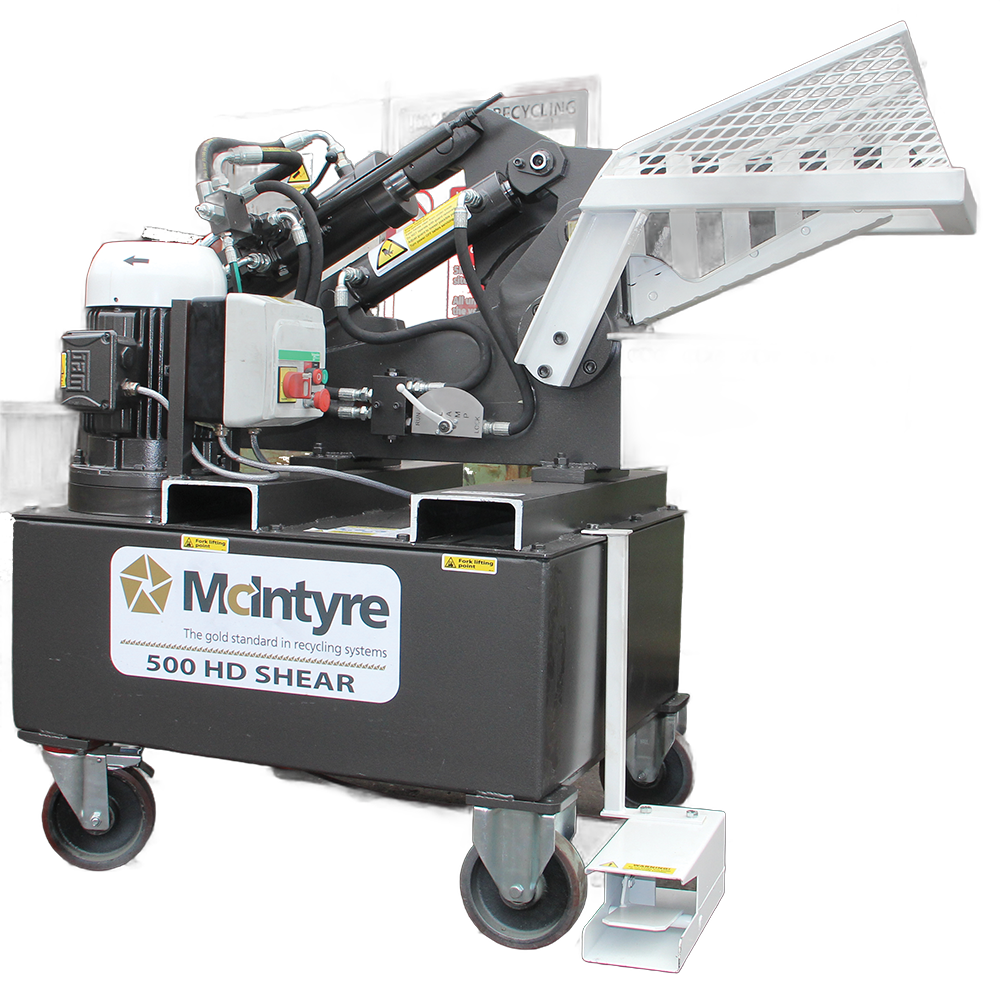
JMC Recycling Ltd.
McIntyre Alligator shears are manufactured by JMC Recycling and the McIntyre name has been prominent in the scrap industry since 1872. The company has been making shears and balers since the early 1970s and has sold over 60,000 machines worldwide since then. Vortex is the McIntyre North American master agent and Vortex owner, Nigel Dove, stated, “The MacIntyre brand is known for quality and longevity throughout the world. We will launch a new model at the 2024 ISRI convention, which will combine higher power with a smaller shear. So, the product bridges the gap in the range between smaller shears and larger, more powerful models. We also offer a gas engine-powered shear that can be used anywhere within a scrap yard,¯˗ because the operation doesn’t require electrical access. The model is available in sizes up to a 28” blade and 640-240t of force.
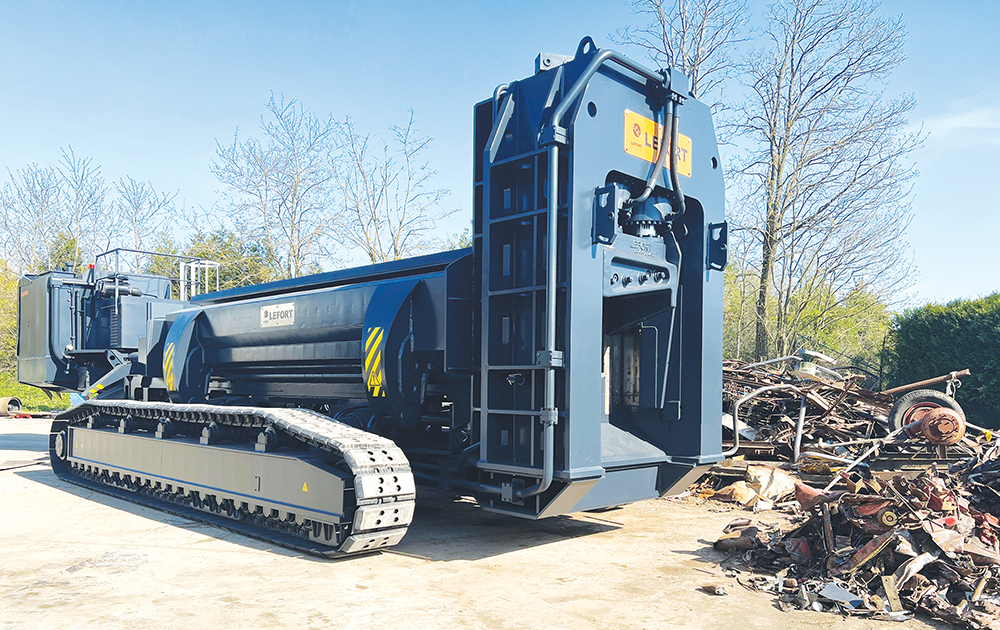
LeFort America
“Shear operators can sometimes be challenged by the risk of working too closely to a shear or getting pinched by the material being cut. We have worked with customers to develop a variety of solutions to increase safety in such situations ― from hold down arms that steady material in place, right up to fully guarded machines. Of course, we are always happy to discuss customer ideas and needs, to better identify custom solutions as well. Although MacIntyre shears are generally used for cleaning nonferrous material for recycling, they have a variety of other uses as well ― in titanium cutting, within auto feed machines used by aluminum extruders, and even by police and military facilities, for weapons destruction.”
Published in the October 2023 Edition of American Recycler News








